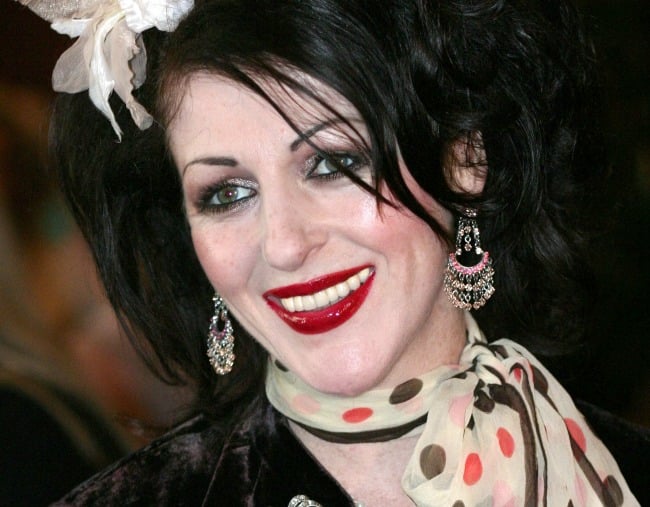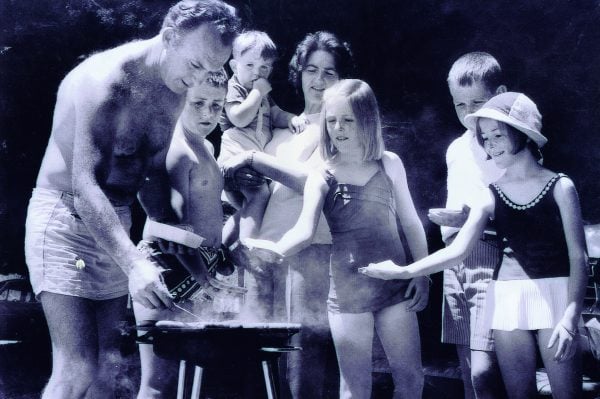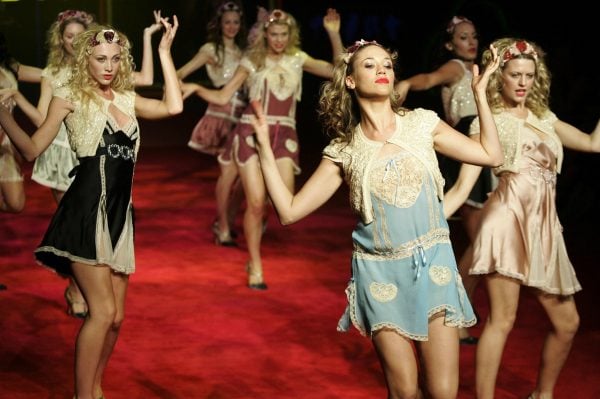
If you’ve been impacted by sexual assault, domestic or family violence, 24-hour support is available. Please call 1800 RESPECT.
Among the earnest, monochromatic shows at Australian fashion week, Alannah Hill‘s runway was a burst of colour and energy. Her models had hips and breasts, they smiled, winked, and danced down the catwalk in her floral, flirty designs.
“It drives people mental,” the designer told Mamamia’s No Filter podcast. “If I do anything I have to do it bigger, louder more incredible. I need to have fun.”
But behind it all was something much darker, more painful.
At the age of 12, while on a train to her grandmother’s place in Hobart, Alannah was sexually assaulted by her 15-year-old brother.
“I’m always amazed how much abuse sexual abuse can affect someone. You can cut a baby, you can leave a 12-year-old on the side of the road for hours. But sexual abuse cuts to the core of something that’s unexplained; it’s indescribable,” she said.


